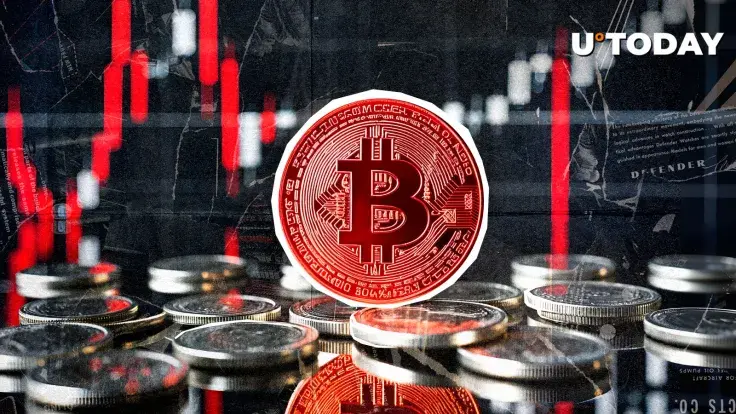Historic First: US Government Publicizes GDP Data on Bitcoin & Solana Blockchains

The U.S. government, through its Commerce Department, has officially initiated the publication of gross domestic product (GDP) data on public blockchain networks. This landmark announcement, reported by Bloomberg, marks a significant integration of blockchain technology into America’s economic reporting infrastructure. GDP data is now accessible on nine distinct networks, including prominent ones like Bitcoin, Ethereum, and Solana, signaling a profound shift in how government information is disseminated and verified.
Commerce officials have clarified that this blockchain rollout serves as “another avenue” for data distribution, not a replacement for traditional economic releases. However, the move carries immense symbolic weight, effectively granting government endorsement to a technology that was once met with considerable skepticism in Washington. Mike Cahill, CEO of Douro Labs, confirmed his collaboration with the Commerce Department on this initiative, stating, “With today’s announcement we are now in a world where government data lives on blockchains, and market participants can participate in real time.”
The initiative involves posting cryptographic hashes of GDP data onto these blockchains. These hashes function as digital fingerprints, providing an immutable record that verifies the integrity and authenticity of the economic information. While the initial scope is limited, Commerce Department officials, according to Bloomberg, have confirmed President Donald Trump’s administration intends to significantly expand the program.
Commerce Secretary Howard Lutnick spearheaded the project, informing President Trump that statistics would be issued via blockchain, acknowledging Trump as the “crypto president.” Lutnick has previously advocated for restructuring GDP reporting to exclude the impact of government spending. This blockchain initiative represents a stark departure from the previous administration under President Joe Biden, which adopted a cautious stance on cryptocurrency, often clashing with exchanges and imposing restrictions on digital assets.
In contrast, President Trump has rapidly integrated Bitcoin and other cryptocurrencies into government policy since taking office. His administration has established a U.S. Bitcoin reserve, stockpiled various digital assets like Ether and Solana, enacted legislation to regulate stablecoins, and appointed crypto-friendly regulators who have ceased enforcement actions against prominent exchanges such as Coinbase. The Trump family has also expanded its involvement in the digital asset space, backing ventures like World Liberty Financial.
The burgeoning political influence of the crypto industry is undeniable, with firms contributing substantially to Trump’s reelection campaign and donating over $133 million to super PACs supporting pro-crypto candidates in 2024, as reported by OpenSecrets. The Commerce Department’s adoption of blockchain for GDP data aligns with other government agencies experimenting with crypto technology. For instance, the Department of Homeland Security has explored blockchain for airport passenger screening, and California’s DMV has digitized car titles using crypto.
Crucially, the data is being published directly onto blockchain networks with the assistance of Chainlink, a leading
You may also like...
Littler's Triumph & Darts Drama: Flanders Trophy Delivers Shocks and New Stars

Luke Littler dominated the Flanders Darts Trophy, securing his fourth European Tour title with an 8-7 win over Josh Rock...
Unstoppable Queens: Super Falcons Secure 10th WAFCON Title, Sparking National Celebration
)
The Super Falcons of Nigeria have secured their 10th WAFCON title with a dramatic 3-2 comeback win against Morocco, spar...
Jude Law's Bold Putin Portrayal in 'The Wizard of the Kremlin' Electrifies Venice with Massive Ovation

The political thriller "The Wizard of the Kremlin," starring Jude Law as Vladimir Putin and Paul Dano as his spin-doctor...
Darren Aronofsky's 'Caught Stealing' Steals the Show: Austin Butler Shines in Action-Packed Thriller, Dominating Box Office

Austin Butler leads Darren Aronofsky's new crime drama "Caught Stealing," playing a bartender embroiled with gangsters i...
Davido, Burna Boy Lead AFRIMA 2025 Nominations: Who Will Reign Supreme?

The 2025 All Africa Music Awards (AFRIMA) has announced a diverse list of nominees, following a record 10,717 entries. N...
Naira Marley Breaks Silence Amidst Mohbad Death Controversy: Investigation Deepens

Naira Marley has released a documentary to break his silence on Mohbad's death, detailing his account of events, from dr...
Pete Davidson's Paternity Joy: Star and Elsie Hewitt Expecting First Child

Comedian Pete Davidson and model Elsie Hewitt are expecting their first child, with Hewitt announcing the news on Instag...
Love Story Unveiled: Taylor Swift & Travis Kelce's Romance Culminates in Engagement!

NFL star Travis Kelce has opened up about his "normal" relationship with Taylor Swift, revealing their organic journey a...
